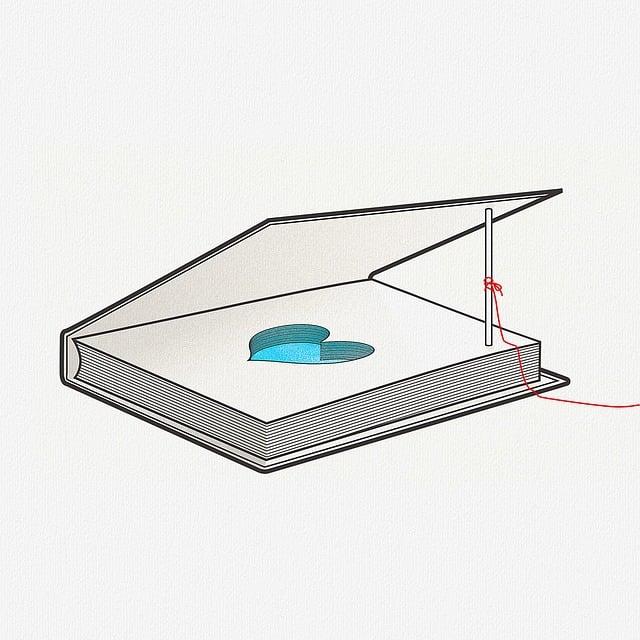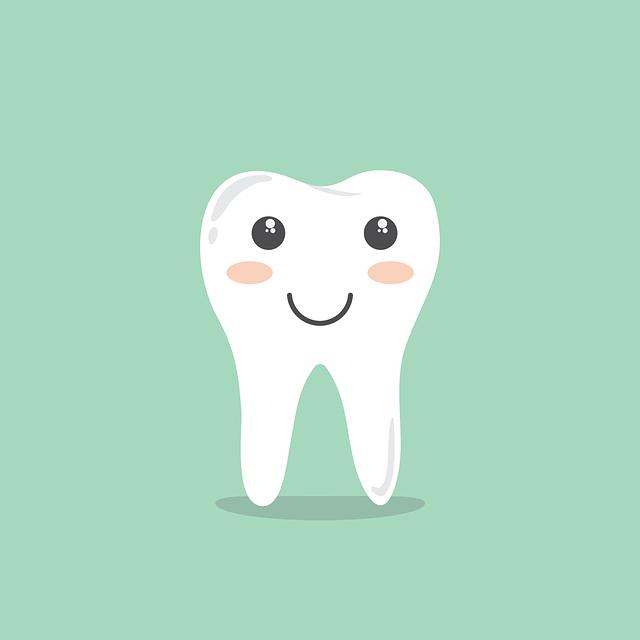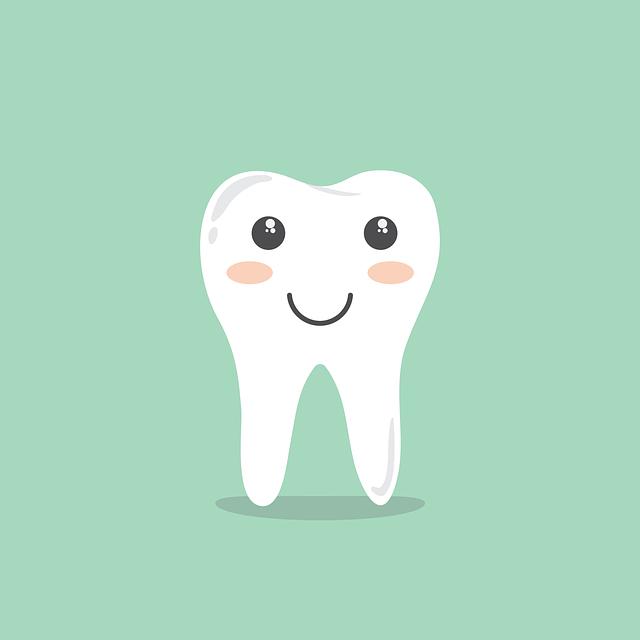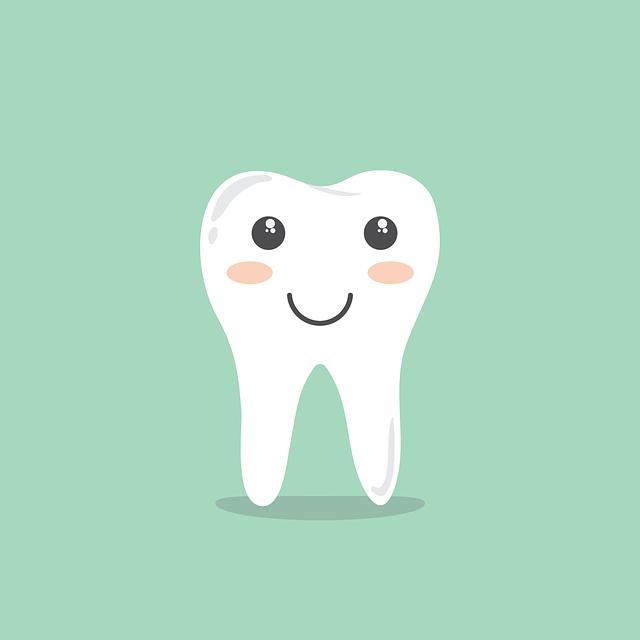Does Using Salt Whiten Your Teeth: Reality Check
Are you tired of spending a fortune on teeth whitening products, only to be left disappointed by lackluster results? Many people are turning to natural remedies in search of a brighter smile, and one such method gaining popularity is using salt. But before you start raiding your kitchen pantry, it’s important to separate fact from fiction and ask ourselves: does using salt really whiten your teeth? In this article, we will delve into the reality behind this age-old remedy and explore whether salt truly holds the key to a dazzling, pearly white smile. Get ready to uncover the truth and discover whether salt is truly the secret ingredient for achieving a radiant smile you’ve always desired.
1. The Science Behind Teeth Whitening: Debunking the Salt Myth
When it comes to teeth whitening, there are numerous myths and misconceptions that can confuse consumers. One common myth is that salt can miraculously whiten teeth. However, let’s debunk this myth and understand the science behind teeth whitening.
1. **Salt does not directly whiten teeth**: Contrary to popular belief, salt alone does not possess any whitening properties. While it may have some abrasive qualities, which can help in removing superficial stains, it cannot penetrate the enamel to bleach the teeth.
2. **Salt as an ingredient in toothpaste**: Although salt is not a teeth whitening agent on its own, it is often included as an ingredient in some toothpaste formulations. The purpose of salt in toothpaste is to enhance its texture, provide a mild abrasive action for plaque removal, and contribute to a refreshing flavor.
3. **Effective teeth whitening methods**: If you’re looking for effective teeth whitening methods, it’s best to opt for products that contain peroxide-based bleaching agents. These agents can penetrate the enamel and break down stains, resulting in a brighter smile. Professional dental treatments, such as in-office whitening or custom-fitted whitening trays, are also highly effective in achieving noticeable results.

2. Separating Fact from Fiction: Can Salt Really Whiten Your Teeth?
Salt is often hailed as a natural remedy for teeth whitening, but it’s important to separate fact from fiction when it comes to this claim. While salt can have some benefits for oral health, its effectiveness in whitening teeth is somewhat exaggerated.
Here are the key points to consider:
- Abrasive properties: Salt has abrasive properties that can help remove surface stains on teeth. When used in combination with gentle brushing, it can contribute to a brighter smile. However, it’s crucial to be mindful of the amount of pressure applied to avoid damaging the enamel.
- No bleaching effect: Unlike professional whitening treatments or over-the-counter whitening products, salt does not have a bleaching effect. It cannot change the intrinsic color of your teeth or remove deep stains.
- Potential risks: Excessive use of salt for teeth whitening can lead to enamel erosion and tooth sensitivity. It’s always recommended to consult with a dentist before trying any DIY whitening methods.
In conclusion, while salt can provide some benefits in removing surface stains, it is not a miracle solution for achieving a Hollywood smile. Professional dental treatments and regular oral hygiene practices remain the most reliable ways to achieve and maintain white teeth.

3. Understanding the Role of Salt in Teeth Whitening: A Comprehensive Analysis
When it comes to teeth whitening, salt has been a subject of interest and debate. Many people wonder if salt can truly help in achieving a brighter smile. In this comprehensive analysis, we will delve into the role of salt in teeth whitening and explore its effectiveness.
The Benefits of Salt for Teeth Whitening:
- Salt acts as a natural abrasive, helping to remove surface stains on teeth.
- It has antimicrobial properties that can inhibit the growth of bacteria in the mouth, promoting oral health.
- Salt can aid in balancing the pH levels in the mouth, which is crucial for maintaining healthy enamel.
- When used in combination with other whitening agents, salt can enhance their effectiveness.
The Limitations of Salt in Teeth Whitening:
- Salt may not be sufficient to remove deep stains or discoloration caused by factors such as genetics or certain medications.
- Overuse of salt as a scrub or rinse can potentially damage the enamel, leading to tooth sensitivity.
- Individual results may vary, as the effectiveness of salt in teeth whitening depends on various factors, including the individual’s oral hygiene habits and overall oral health.
In conclusion, salt can play a role in teeth whitening by acting as an abrasive and promoting oral health. However, it is important to use salt in moderation and in conjunction with other whitening methods for optimal results. Consulting with a dental professional is advisable to determine the most suitable whitening approach based on individual needs and circumstances.
4. Exploring the Truth: Does Using Salt Actually Whiten Your Teeth?
Using salt as a teeth whitening method has been a popular home remedy for years. But does it really work? Let’s explore the truth behind this widely believed notion.
1. Abrasive properties: One of the reasons salt is thought to whiten teeth is due to its abrasive nature. Salt crystals can help remove surface stains by gently scrubbing the enamel. However, it’s important to note that excessive scrubbing can also damage the enamel, so moderation is key.
2. Antibacterial effects: Salt has natural antibacterial properties that can help reduce bacteria in the mouth. This can contribute to a cleaner oral environment and potentially improve the appearance of teeth. However, it’s essential to remember that salt alone cannot replace proper oral hygiene practices, such as regular brushing and flossing.
3. Limitations: While salt may have some benefits for teeth whitening, it is not a miracle solution. It cannot remove deep stains or alter the natural color of teeth. Professional teeth whitening treatments or over-the-counter whitening products are more effective for achieving significant whitening results.
5. Dispelling Common Misconceptions: The Truth About Salt and Teeth Whitening
When it comes to teeth whitening, there are many misconceptions floating around, especially when it comes to the use of salt. Let’s set the record straight and dispel some common myths:
Myth #1: Salt can whiten your teeth on its own.
This is simply not true. While salt can help scrub away surface stains, it is not a standalone solution for teeth whitening. Salt acts as an abrasive agent, removing some surface discoloration, but it cannot penetrate the enamel to whiten deep stains. Therefore, if you’re looking for significant whitening results, it’s best to consult a dentist or use professional teeth whitening products.
Myth #2: Salt can reverse tooth decay.
Unfortunately, this is another misconception. Salt cannot reverse tooth decay. It may have some antibacterial properties that can help reduce the risk of decay, but it cannot repair existing decay or cavities. Tooth decay requires professional dental treatment and a proper oral hygiene routine to prevent further damage.
Myth #3: Salt is a safe and effective teeth whitening method.
While salt may have some benefits for oral health, it is not the safest or most effective method for teeth whitening. Overuse of salt as a scrub can damage the enamel, leading to tooth sensitivity and other dental problems. It’s always best to consult with a dental professional for safe and effective teeth whitening options tailored to your specific needs.
By dispelling these common misconceptions, we hope to provide you with accurate information when it comes to salt and teeth whitening. Remember to always rely on professional advice and methods for achieving a brighter, whiter smile.
6. The Salt Whitening Hype: Unveiling the Reality Behind the Claims
Salt whitening products have gained significant popularity in recent years, with manufacturers claiming extraordinary results. However, it is essential to separate fact from fiction when it comes to these claims. Here, we debunk some of the common myths surrounding salt whitening and shed light on the reality behind the hype.
1. **Claims of Instant Whitening**: Many salt whitening products boast immediate results, promising to transform your teeth into a pearly white smile within minutes. While salt may have some mild whitening properties, it is important to note that the process is gradual and requires consistent use over a period of time. Expecting instant whitening from salt products alone is unrealistic.
2. **Effectiveness in Removing Stubborn Stains**: Salt is often touted as a miracle ingredient that can effortlessly remove even the toughest stains. While salt may help in reducing surface stains caused by coffee, tea, or smoking, it may not be as effective on deep-set stains or discoloration caused by other factors. For more severe cases, professional dental treatments or whitening products that contain stronger active ingredients may be necessary.
3. **Overall Oral Health Benefits**: Some manufacturers claim that salt whitening products not only whiten teeth but also provide significant oral health benefits. While salt can have antimicrobial properties and may help reduce bacteria in the mouth, it is important to remember that it is not a substitute for regular oral hygiene practices such as brushing, flossing, and dental check-ups. It is always recommended to maintain a comprehensive oral care routine for optimal dental health.
In conclusion, while salt whitening products may have some benefits, it is crucial to approach their claims with a realistic perspective. Gradual whitening, limitations in removing stubborn stains, and the need for overall oral care should be considered. As with any dental product, consulting with a dental professional is advisable to determine the best approach for achieving your desired results.
7. Unmasking the Salt Teeth Whitening Trend: What Science Says
As dental trends continue to flood social media, one particular phenomenon has caught the attention of many: salt teeth whitening. Proponents of this method claim that using salt can effectively brighten your smile without the need for expensive treatments or harsh chemicals. But what does science have to say about this popular trend?
According to dental experts, there is limited scientific evidence to support the effectiveness of salt teeth whitening. While salt does have mild abrasive properties that can help remove surface stains, it is not a substitute for professional teeth whitening procedures. Moreover, using salt excessively or too vigorously can actually damage your tooth enamel, leading to long-term oral health issues.
If you’re considering trying salt teeth whitening, it’s important to consult with your dentist first. They can provide personalized advice based on your dental health and guide you towards safe and effective whitening options. Remember, maintaining good oral hygiene practices, such as regular brushing, flossing, and professional cleanings, are key to achieving a healthy and bright smile.
8. Expert Insights: Why Salt Alone Might Not Be Effective in Whitening Teeth
When it comes to teeth whitening, many people turn to salt as a natural and cost-effective solution. However, it’s important to understand that salt alone might not be as effective as you think. Here are some expert insights to shed light on why:
1. Abrasive nature: Salt is indeed abrasive, and it can help remove surface stains from teeth to some extent. However, its abrasive nature can also damage tooth enamel if used excessively or with a harsh brushing technique. Therefore, it’s crucial to be cautious while using salt for teeth whitening.
2. Lack of bleaching properties: Unlike other teeth whitening methods, salt doesn’t possess any bleaching properties. It can only remove superficial stains and brighten the teeth temporarily. If you’re looking for a more significant and long-lasting whitening effect, it might be necessary to explore alternative options.
3. Limited effectiveness on deep stains: Salt may not be effective in removing deep stains caused by factors like tobacco, certain medications, or excessive consumption of staining agents such as coffee or red wine. In such cases, professional teeth whitening procedures or products recommended by dentists may be more suitable to achieve the desired results.
It’s essential to consult with a dental professional to determine the most appropriate teeth whitening method for your specific needs. While salt can be a part of your oral care routine, it shouldn’t be solely relied upon as a comprehensive solution for teeth whitening.
9. A Closer Look at Alternative Teeth Whitening Methods: Comparing Salt to the Alternatives
When it comes to teeth whitening, there are numerous alternative methods available in the market. One such method that has gained popularity is the use of salt as a natural teeth whitener. However, it is essential to understand how salt compares to other alternatives to make an informed decision.
1. Effectiveness:
Salt, although widely believed to have teeth whitening properties, lacks scientific evidence to support its efficacy. On the other hand, alternative methods such as whitening toothpaste, strips, or gels contain active ingredients like hydrogen peroxide or carbamide peroxide, which are proven to remove stains and lighten teeth effectively.
2. Safety:
While salt may seem harmless, it is important to note that excessive use can damage tooth enamel due to its abrasive nature. Conversely, most reputable teeth whitening alternatives undergo rigorous testing to ensure their safety for regular use. Look for products that are approved by dental associations or carry the American Dental Association (ADA) seal of acceptance.
3. Convenience:
Using salt as a teeth whitener may require more effort and consistency compared to other alternatives. Alternatively, products like whitening strips or gels provide a convenient and hassle-free method, with simple application and minimal time investment. Consider your lifestyle and preferences when choosing a teeth whitening method.
Ultimately, while salt may seem like a natural and cost-effective solution, it may not offer the same level of effectiveness, safety, and convenience as other teeth whitening alternatives. It is advisable to consult with a dental professional to determine the most suitable method for achieving your desired results.
10. Making Informed Choices: The Pros and Cons of Using Salt for Teeth Whitening
When it comes to teeth whitening, using salt as a natural remedy has gained popularity. While it may seem like a convenient and cost-effective solution, it is essential to understand the pros and cons before incorporating this method into your oral care routine.
Pros of Using Salt for Teeth Whitening:
- Natural and easily accessible: Salt is a common household ingredient that is readily available and inexpensive.
- Mild abrasive properties: Salt can act as a gentle exfoliant, helping to remove surface stains and plaque buildup on teeth.
- Antibacterial properties: Salt possesses antibacterial properties that can help reduce bacteria in the mouth, promoting better oral health.
- Simple application: Applying salt for teeth whitening is relatively straightforward and can be incorporated into your regular brushing routine.
Cons of Using Salt for Teeth Whitening:
- Potential enamel erosion: Salt is abrasive, and excessive or vigorous use may wear down the enamel, leading to tooth sensitivity and increased vulnerability to decay.
- Limited effectiveness: While salt can help remove surface stains, it may not be as effective in tackling deeper discoloration or intrinsic staining.
- Unpleasant taste and texture: Some individuals may find the taste and gritty texture of salt during brushing unpleasant or uncomfortable.
- Risk of overuse: Using salt excessively or too frequently may disrupt the natural balance of oral flora and potentially harm the oral cavity.
Ultimately, the decision to use salt for teeth whitening should be based on individual preference and consultation with a dental professional. They can provide personalized advice and recommend alternative methods that may be more suitable for achieving the desired results without compromising oral health.
Frequently Asked Questions
Q: Does using salt actually whiten your teeth?
A: In reality, using salt as a teeth-whitening agent is more of a myth than a proven technique.
Q: How does salt supposedly whiten teeth?
A: The theory behind salt’s teeth-whitening potential lies in its abrasive nature. It is believed that salt can scrub away surface stains on your teeth, revealing a brighter smile.
Q: Is there any scientific evidence to support salt as a teeth-whitening method?
A: Despite its popularity as a home remedy, there is limited scientific evidence to back up the effectiveness of salt for teeth whitening.
Q: What are the potential risks of using salt to whiten teeth?
A: While salt is generally safe to use in moderation, excessive scrubbing with salt can damage the enamel, leading to sensitivity and other dental problems.
Q: Are there any alternative methods that are more reliable for teeth whitening?
A: Yes, there are several proven teeth-whitening methods available. Professional dental treatments, such as bleaching or laser therapy, are considered more effective and safer options. Over-the-counter whitening products, approved by dental associations, can also provide noticeable results.
Q: What are some natural alternatives to salt for teeth whitening?
A: Baking soda, activated charcoal, and hydrogen peroxide are popular natural alternatives that have shown some evidence of teeth-whitening properties. However, it is crucial to consult with a dental professional before using any of these methods to ensure safety and effectiveness.
Q: How can I maintain good oral hygiene and prevent teeth stains?
A: Regular brushing and flossing, along with routine dental cleanings, are essential for maintaining good oral hygiene and preventing teeth stains. Avoiding or minimizing consumption of stain-causing substances like coffee, tea, and tobacco can also help keep your smile bright.
Q: What is the key takeaway regarding using salt to whiten teeth?
A: While salt may have some mild abrasive properties, there is insufficient scientific evidence to support its effectiveness as a teeth-whitening method. It is always best to consult with a dental professional for reliable and safe teeth-whitening options.
The Way Forward
In conclusion, it’s time for a reality check on the claim that using salt can whiten your teeth. After a thorough examination of the evidence, it is clear that salt alone is not an effective whitening agent for your pearly whites. While it may have some antibacterial properties and help in maintaining oral health, the idea that salt can magically transform your teeth into a dazzling Hollywood smile is simply a myth.
Key Takeaways:
1. Salt does not possess the ability to whiten teeth on its own.
2. Teeth whitening requires the use of specific whitening agents or professional treatments.
3. Brushing with salt may have some oral health benefits, but it won’t give you a brighter smile.
4. It’s important to rely on scientifically proven methods and consult dental professionals for effective teeth whitening options.
5. Remember, maintaining good oral hygiene practices, such as regular brushing, flossing, and dental check-ups, is vital for a healthy and radiant smile.
So next time you hear someone advocating for salt as a teeth whitener, you can confidently debunk this myth armed with the knowledge that it’s just not true. Stick to tried-and-true methods backed by dental professionals and enjoy a beautiful smile that truly shines.






